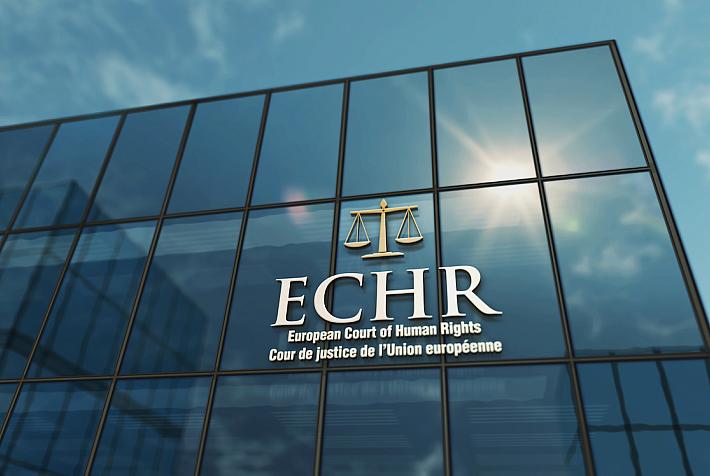Comment: Cyprus, an island battered by political and financial waves

 Guest writer Mariana Ganea takes a look at the Cyprus situation and discuses the options the island has in the middle of the crisis.
Guest writer Mariana Ganea takes a look at the Cyprus situation and discuses the options the island has in the middle of the crisis.
It's now been a few weeks since news of the latest European financial catastrophe broke in Cyprus. After years of crisis during which millions from the USA to Europe and around the world have been affected, after we worried about Iceland, Ireland, Greece, Portugal, Spain, Italy, now Cyprus has emerged as the latest protagonist in this seemingly endless story.
Following the news about the potential collapse of the Cyprus banking industry, I remembered about a great holiday I had there at the end of 2011 and the beginning of 2012. What I saw there was an island state with wonderful landscapes, with blooming orange trees in December, a well performing tourism industry with well trained staff, good Mediterranean food and important British influences. Spending New year's Eve on the island was a true pleasure - good food and drinks, great people and all round entertainment. The only less than pleasant part of the trip was when, on a rainy day, I visited Nicosia the capital intending pass through to the Turkish part if the island. The queue was too long and the soldiers terrified me with their uniforms and guns, which was enough to put me off going. That day was the only one which discomforted me and I considered the negative effects politics can have.
When I returned to Romania, I thought about what a wonderful country Cyprus is and the good, kind people who live there. I also questioned how a small island state without natural resources and without industry can, albeit with the help of EU and British Commonwealth membership, assure a good living standard for its citizens. What was the secret? The answer is very simple: the use of the geographic location, the natural beauty and the mixed Mediterranean and Near East traditions. The development of the tourism industry related to very good infrastructure and banking industry transformed Cyprus into one of the most attractive tourist destinations in the South of Europe.
But, this lovely place was suddenly disturbed by the announcement of potential banking failure with the capacity to bankrupt the entire state. It will be very difficult for Cyprus to cope with such a situation, I think almost impossible. A country which is based on tourism services cannot survive without financial services. Instead of analyzing in depth this new chapter of the international (mostly European) financial crisis, I’ll look at some of so called rescue plans which were presented in these last weeks.
The first solution which is very common and seems to be the only one for many of the EU representatives, is to tax the common people. The EU had a lot of “interesting” ideas to solve the financial European crisis but, in my opinion, the solution for the Cypriot banking system shows little imagination. Briefly the European bureaucrats found the miraculous solution of taxing bank deposits by various percentages, in fact “nationalizing” an important part of the firms' and individuals' money. I don’t think the rate or finding a legal way to put the measure into practice matters; the core problem here is the proposal per se. So the European bureaucrats discovered after years and years of crisis that little Cyprus has too large a banking system with flows of millions and millions of euros. Seeing their worries I must put some questions:
1.Where were these worried people years ago when the Cypriot banking system increased “in one day as others did in months” as it says in our traditional folk tales?
2.Why didn’t they take steps to stop this inflation of banks, products, customers and running fund flows?
3.What did the Europeans bureaucrats take into account when they accepted countries like Cyprus in the eurozone, whose economic performance couldn’t compare with the German or French economies ?
4. Where is the respect for property rights? Those funds belong to their owners, individuals and firms, not to the Cypriot state or the EU.
Many specialists in the financial industry have begun to consider as a large strategy error the chaotic enlargement of EU and the policies followed for the single currency. Returning to Cyprus, as in more or less similar cases (Greece, Spain and Portugal), the EU decisions were based only on geopolitical interests. Cyprus, as it connects with Mediterranean countries outside the EU, was the victim of it very good geographical location, no more. Europe needed to control the Mediterranean Sea and the emerging markets around it. It's about politics, isn’t it ?
The second solution, as usual, is the loans. The question here is “Who can Cyprus borrow from?” Of course the EU, but not because Cyprus is a member with equal rights, only because of the involvement of the Russian capital, which can damage the EU interests in this geo-strategic point situated at the crossroads of Europe, Africa and Near Orient. This situation made me again ask a few questions:
1.Why didn’t the EU worry earlier about the Russian "invasion" of capital? In my opinion, they understood only later in the crisis context that too much Russian capital in Cyprus could be dangerous from the perspective of their interests. So, they decided to “help” Cyprus with loans only to avoid borrowing from the Russian magnates.
2.Why are the Russians so concerned? Because their very rich people do business or only “wash” money there and many so called Russian businessmen finance the “democratic” policy of the huge and powerful ex-Soviet country. If we add to this the strategic point in Mediterranean Sea we have a more complete picture, and as usually, a political one.
The third solution is, in my opinion, the most unusual and specific to Cyprus. This solution came from the Cyprus Orthodox Church, which is ready to give money from its treasury to save the country. It would certainly be a lot more than Romania's Orthodox Church has done about the crisis, despite the 80 percent of the population faith that follow the religion. The Cypriot Church's offer also made me think of the religious/ethnic differences on the island that have led to the present situation whereby the little island is divided in two.
The roots of the problem in Cyprus are maybe not all financial, but at least partly in politics - European and beyond. A friend of mine who still works in a Cypriot bank remarked that the third World War doesn't use traditional weapons, but rather "the most dangerous weapon:" economics. This view, or something similar, is shared by many from many walks of life around the world. This could have potentially disastrous effects on common people all around the World; not be only financial or social, but moral and ethical too, damaging the spiritual health of human beings, which is already in bad shape nowadays.
By Mariana Ganea, Guest Writer
(photo source: sxc.hu)















